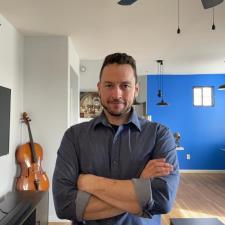Raymond B. answered • 03/09/22
Math, microeconomics or criminal justice
That's all we have, just our perceptions, 5 senses. we don't even know if anything exists. Decartes said "I think therefore I am," but that only implies you personally exist and only to the extent of your thinking, your thoughts your perception. Socrates said he's not certain of anything, except that's he's certain he's not certain of anything. Berkeley aligns with radical skepticism.
It's related to the philosophical question "If a tree falls in the forest and there's no one to hear it fall, did it make a sound?" Berkeley says no. But the materialists aren't altogether convincing a sound existed, without an ear to hear.
we don't know if there's anything external. Solipsism is similar, in arguing we have no reason to believe anything exists outside of our own mind.
Materialism is the opposite extreme, which claims nothing exists except the material, physical world, and our own mind is not anything other than the physical brain.
Sartre's existentialism is another avenue to creating your own external world, with free will. While the materialists tend to be deterministic denying any free will.
Most would probably believe in some middle position. We do know more about ourselves and out own mind, but we can't ignore the common beliefs of others about an external world. Most realize there are limits to free will, but don't believe we have no free will at all.
Berekley is an extremist in epistemology and ontology. We prefer moderation, especially after WW2 with Nazis and Stalinists.
Quantum physics and Einstien's relativity lend some support to Berkeley, as what appears physical, solid turns out be "mere" energy. Time and space are relative, not the clear objects we may think.
But then there's Rome's Cicero quoted by Barry Goldwater "Extremism in the defense of liberty is no vice. Moderation in the pursuit of justice is no virtue." Many on the left or right might agree. But the people in the middle still prefer to avoid extremes.
Bishop Berkeley came at his position from Christianity, Catholicism or the closely related Anglican Church of England. He's also similar to Christian Science, as if all were mental. It's like positive thinking or the placebo effect. Believe and you can be healed. Be a True Believer and you can move mountains.




